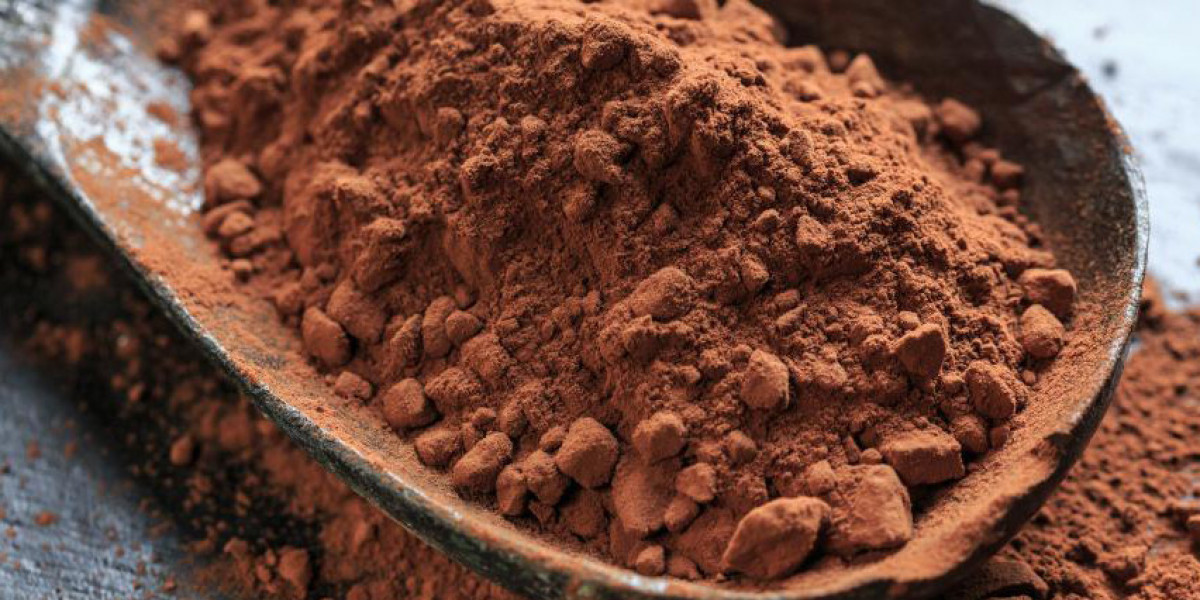Cocoa powder is a pantry staple for home bakers and professional chefs alike. Whether you’re whipping up a batch of brownies, dusting a tiramisu, or creating rich chocolate sauces, the kind of cocoa powder you use can dramatically affect the flavor, texture, and color of your dessert. But when it comes to choosing between unsweetened cocoa powder and Dutch-processed cocoa powder, which one is the best?
In this blog, we’ll explore what sets these two types of cocoa powder apart, when to use each one, and how to elevate your baking game with the right choice.
What Is Cocoa Powder?
Before diving into the comparison, let’s understand what cocoa powder really is. Cocoa powder is made by grinding roasted cacao beans and removing most of the cocoa butter, resulting in a dry and powdery substance that’s rich in chocolate flavor. There are two primary types:
Natural or Unsweetened Cocoa Powder
Dutch-Processed Cocoa Powder (Alkalized)
Both serve different purposes in the kitchen, and understanding their differences is key to mastering chocolate-based recipes.
Unsweetened Cocoa Powder: Bold and Natural
Unsweetened cocoa powder is often labeled as “natural cocoa.” It has a light brown color and a sharp, slightly acidic flavor. This powder has not undergone any chemical treatment, so it retains its natural pH level of around 5.
Because of its acidity, unsweetened cocoa powder reacts with baking soda (a base) in recipes to create leavening – that is, it helps baked goods rise. You’ll often find unsweetened cocoa powder in classic recipes like chocolate cakes, cookies, and muffins.
Pros of Unsweetened Cocoa Powder:
Strong, intense chocolate flavor
Ideal for recipes with baking soda
Minimal processing
More antioxidants due to its natural state
Best Uses:
Classic chocolate cakes
Fudgy brownies
Hot chocolate
Homemade chocolate syrups
Dutch-Processed Cocoa Powder: Smooth and Mellow
Dutch-processed cocoa powder is treated with an alkalizing agent to neutralize its acidity. This process, developed by a Dutch chemist in the 1800s, gives the powder a darker color and a smoother, more mellow flavor. Its pH level is neutral (around 7), so it doesn’t react with baking soda in the same way as unsweetened cocoa powder.
Dutch-processed cocoa powder is often preferred for its rich color and less bitter taste. It’s commonly used in European recipes and is great for making desserts where a deep, chocolatey hue and smoother taste are desired.
Pros of Dutch-Processed Cocoa Powder:
Milder, less acidic taste
Deep chocolate color
Dissolves well in liquids
Less bitter, smoother flavor
Best Uses:
Ice cream
Pudding
Chocolate frosting
Dark chocolate cakes
Key Differences Between Unsweetened and Dutch-Processed Cocoa Powder
Feature | Unsweetened Cocoa Powder | Dutch-Processed Cocoa Powder |
Acidity (pH) | Acidic (~5) | Neutral (~7) |
Flavor | Sharp, bitter, intense | Mellow, smooth, mild |
Color | Light to medium brown | Dark brown to nearly black |
Reaction with Baking Soda | Yes | No (needs baking powder instead) |
Processing | Minimal | Alkalized |
Antioxidants | Higher | Lower due to processing |
When to Use Each Type of Cocoa Powder
Choosing between unsweetened and Dutch-processed cocoa powder depends largely on the recipe you’re making and the leavening agents involved.
Use Unsweetened Cocoa Powder When:
Your recipe calls for baking soda
You want a strong, dark chocolate flavor
You’re making American-style cakes, brownies, or cookies
Use Dutch-Processed Cocoa Powder When:
Your recipe calls for baking powder or no leavening
You want a smooth, less acidic flavor
You’re making European-style pastries or desserts
Can They Be Used Interchangeably?
In some recipes, yes—but it’s not always ideal. Since cocoa powder plays a chemical role in baking, especially when reacting with leavening agents like baking soda or baking powder, swapping one type for the other without adjustments can impact the texture, rise, and flavor of your baked goods. The acidity in unsweetened cocoa powder activates baking soda, while Dutch-processed cocoa powder, being neutral, requires baking powder for proper leavening.
Tip: If replacing Dutch-processed with unsweetened cocoa powder, add a touch of baking soda. If replacing unsweetened with Dutch-processed cocoa, use baking powder to maintain balance and structure in your recipe.
Which Cocoa Powder Is Healthier?
From a nutritional perspective, unsweetened cocoa powder has the edge. Since it undergoes less processing, it retains more of the natural flavonoids and antioxidants found in cacao beans. These compounds are known for their anti-inflammatory and heart-healthy benefits.
However, both types of cocoa powder are naturally low in fat and sugar (unless sugar is added), making them a guilt-free way to satisfy chocolate cravings, especially when you choose a high-quality brand like Baqa Foods.
Why the Quality of Cocoa Powder Matters
Regardless of the type you choose, not all cocoa powders are created equal. The quality of the cacao beans, the roasting process, and the method of grinding all contribute to the final flavor and texture.
At Baqa Foods, we offer premium-grade cocoa powder that’s perfect for both baking and beverages. Whether you need a rich, unsweetened punch for your brownies or a velvety Dutch-processed powder for your mousse, Baqa Foods provides reliable, delicious results every time.
Final Verdict: Which Cocoa Powder Is Best?
There’s no one-size-fits-all answer. The “best” cocoa powder depends on your recipe’s needs:
Choose unsweetened cocoa powder for bold flavor and recipes with baking soda.
Opt for Dutch-processed cocoa powder for smooth taste and rich color, especially when using baking powder.
The secret lies in using high-quality cocoa powder, and Baqa Foods has you covered.
Elevate Your Baking with Baqa Foods
Whether you're a home baker or a professional chef, the right cocoa powder makes all the difference. Baqa Foods brings you premium-quality unsweetened and Dutch-processed cocoa powders that deliver intense flavor, consistent texture, and beautiful results. Shop now at Baqa Foods and bring out the best in your desserts!







